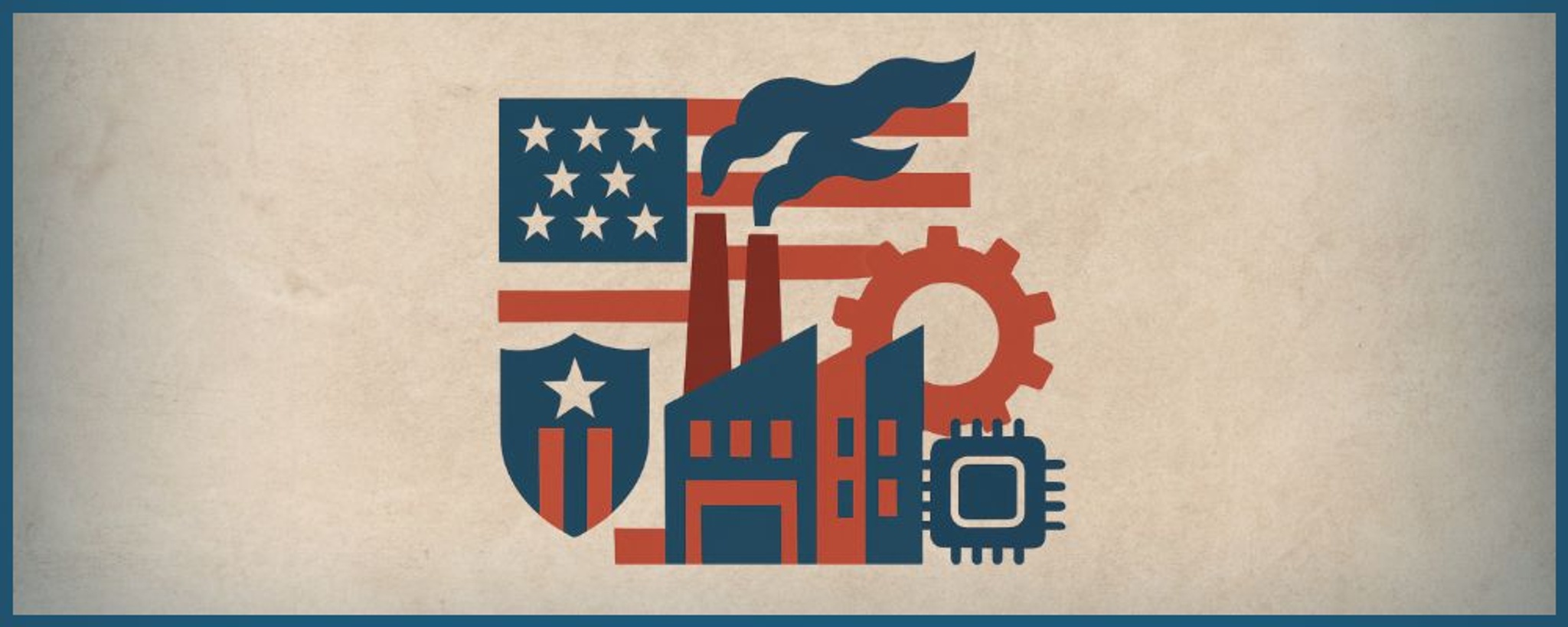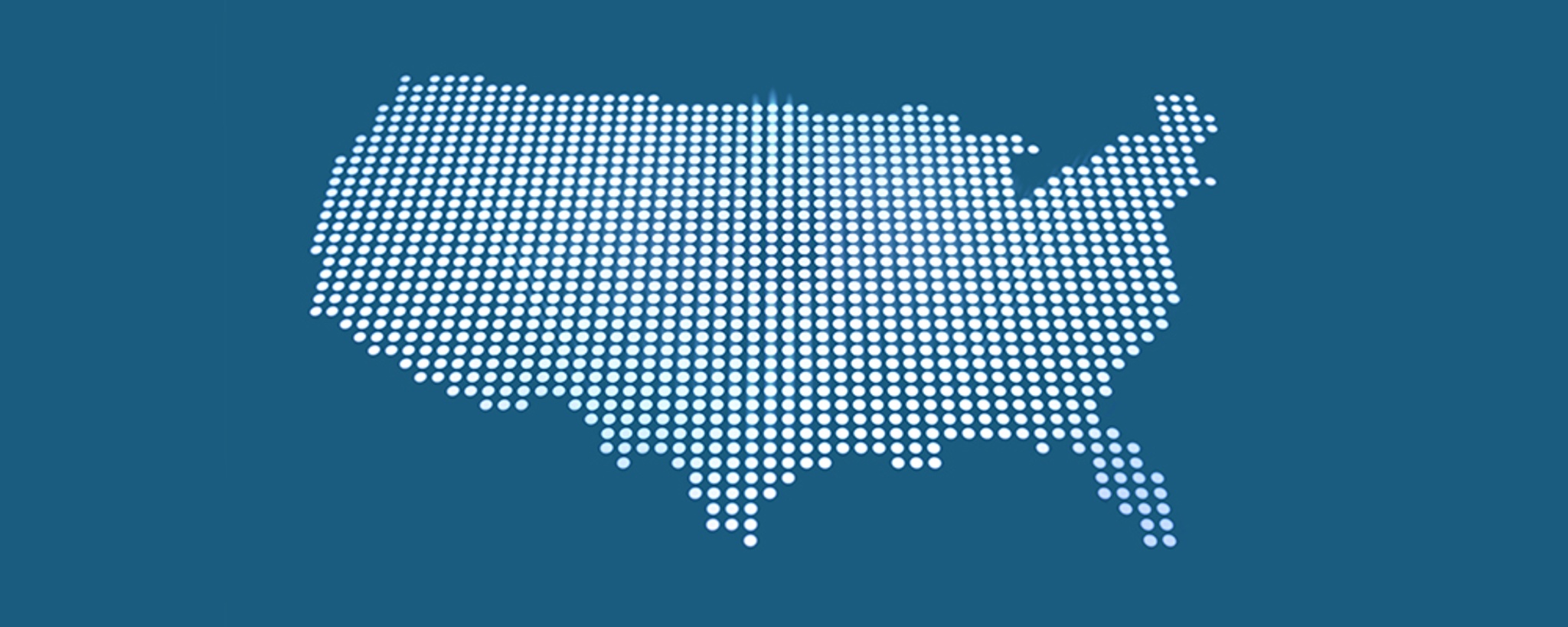National Competitiveness
Navigate forward to interact with the calendar and select a date. Press the question mark key to get the keyboard shortcuts for changing dates.
Navigate backward to interact with the calendar and select a date. Press the question mark key to get the keyboard shortcuts for changing dates.
As nations engage in a race for global advantage in innovation, ITIF champions a new policy paradigm that ensures businesses and national economies can compete successfully by spurring public and private investment in foundational areas such as research, skills, and 21st century infrastructure. Our work on competitiveness policy includes analysis of the many factors and policies driving national competitiveness, including improving innovation ecosystems and the technical capacity of high-value-added industries.

Vice President, Global Innovation Policy, and Director, Center for Life Sciences Innovation
Information Technology and Innovation Foundation
Read Bio
Head of Policy, Centre for Canadian Innovation and Competitiveness
Information Technology and Innovation Foundation
Read BioFeatured
China Is Rapidly Becoming a Leading Innovator in Advanced Industries

There may be no more important question for the West’s competitive position in advanced industries than whether China is becoming a rival innovator. While the evidence suggests it hasn’t yet taken the overall lead, it has pulled ahead in certain areas, and in many others Chinese firms will likely equal or surpass Western firms within a decade or so.
The Hamilton Index, 2023: China Is Running Away With Strategic Industries

China now dominates the strategically important industries in ITIF’s Hamilton Index, producing more than any other nation in absolute terms and more than all but a few others in relative terms. Its gains are coming at the expense of the United States and other G7 and OECD economies, and time is running short for policymakers to mount an industrial comeback.
More Publications and Events
November 17, 2026|Events
Save the Date: National Power Industry War Conference
Please join ITIF for an important policy conference on what U.S. policymakers must do to prevent America from suffering a catastrophic defeat in its techno-economic-trade war with China. At stake are vital production capabilities in the advanced, traded-sector industries that provide the foundation for economic strength and national security in the 21st century.
February 5, 2026|Testimonies & Filings
Coalition Letter Requesting Trade Subcommittee Hearings on Non-Tariff Attacks Against US Technology Companies
NTAs restrict U.S. firms’ ability to innovate and compete on level terms, undermining U.S. technology leadership, economic strength, and national security in the geostrategic competition with China. Congress and the Administration need to have policy tools at their disposal to identify, document, prevent, and respond to these measures.
February 4, 2026|Op-Eds & Contributed Articles
Productivity, Not Flag Waving, Should Drive Canada’s Digital Strategy
Canada should prioritize boosting productivity through the adoption of advanced technologies across its firms and governments, rather than pursuing domestic ownership of existing infrastructure in the name of “digital sovereignty.”
February 3, 2026|Blogs
Strategic Indispensability or Strategic Irrelevance
Canada’s path to lasting competitiveness lies in strategic indispensability: specializing in a small number of high value-added goods or services that the world can’t do without. Ottawa must continue making explicit decisions about what gets built and what does not; otherwise, it risks spending heavily with little to show for it.
February 2, 2026|Reports & Briefings
The Case for Policy Transformation to Avoid Losing the Techno-Economic-Trade War With China
The United States is at serious risk of becoming dependent on China for a wide array of key technologies and products, which would significantly shift the global balance of techno-economic power. Only fundamental policy change can potentially keep the United States from defeat.
January 30, 2026|Blogs
Fact of the Week: Chinese Ship Exports Have Increased by 1,525 Percent Since 2004
The Chinese shipbuilding industry controls 55 percent of global market share, with exports increasing by 1,525 percent since 2004.
January 29, 2026|Blogs
The Case Against Allowing Chinese Factories in America
Letting Chinese EV and battery firms build in America wouldn’t revive manufacturing. It would reduce U.S. market share, hollow out domestic capabilities, and create new strategic dependencies.
January 29, 2026|Testimonies & Filings
Comments to the Competition Bureau of Canada Regarding Anti-competitive Conduct and Agreements Enforcement Guidelines
While the Draft Guidelines generally and correctly focus on condemning only behavior that results in anticompetitive effects, in several specific respects they could be fine-tuned to provide for greater administrability and better limit false positives so as to ensure that innovation and competition flourish in Canada.
January 22, 2026|Blogs
Declining Science and Engineering R&D in Higher Education Threatens US Competitiveness
U.S. higher education plays a central role in science and engineering R&D, yet investment in these fields has declined over the past decade. This erosion threatens the future of U.S. technological leadership and its ability to compete with China.
January 22, 2026|Blogs
2026: The End of the Western Alliance and the Emergence of China
Davos made clear that many “allies” would rather denounce the United States and chase access to Chinese markets than bear the burdens required to sustain the Western alliance and democratic system.









